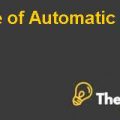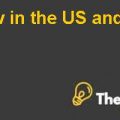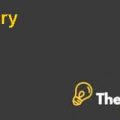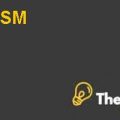Crescent Pure Case Solution
Introduction
Portland Drake Beverages is the leading company in the beverage industry that was founded in 2008 by Peter Hooper. It is a manufacturer of organic juices and sparkling water that has a wide range of markets across the United States of America. The company provides high-quality organic juices and sparkling water at a reasonable to their customers. In 2012, the company generated revenue of around 120 million. However, the key person in the company is Michael Booth who runs Portland Drake Beverages.
PDB achieved a profitable market and their business growth rate was increasing consistently so, they decided to expand their business size into the segment of functional beverages. So, in 2014, Portland Dark Beverages (Peter Hooper) launched Crescent Pure Company in Oregon which provides non-alcoholic beverages that contain natural and organic ingredients. The market research team of Portland Drake Beverages estimated that Crescent Pure had a highly demanded market that allowed the company to achieve its business targets so that is why Portland Dark Beverages has a profitable market across the US.
Problem Statement
Crescent Pure was launched by PDB in 2008 due to the recession in the business growth so, the company decided to improve its economic health by the acquisition of Crescent Pure company that have a demand and profitable market. In 2018, the company found rapid growth in the non-alcoholic drinks segment and built a huge market share.
However, the energy drink was creating minimum returns so, the company decided to launch energy drinks and sports drinks across the country. Furthermore, the executives of PBD had two options to decide the marketing campaign and promotion for the product positioning in the market while the options include Sports drinks or organic drinks.
Critical Analysis
Financial Analysis
The financial analysis before the expansion or acquisition is essential for a company to understand the economic feasibility of the market for the company. Market productivity has a direct relation with the financial analysis of the company that allows the company to choose a profitable market. So, PDB performs a financial analysis to check whether the acquisition of Crescent Pure is profitable or not for the company. The analysis indicates that the company can get around $0.22 profit on each drink can as the variable and wholesale price of each can be around 1.02 and 1.24 respectively.
However, the company was producing around 12,000 cases monthly and around 144000 annually so, the annual profit of the company in this segment is around $760,320 and the net profit of the company is around $10,230. The net profit of $10230 for the business has a vital role in regulating the economic recession, so that is why PDB acquired Crescent Pure to improve its economic health.
The financial calculation of the company is in the below table.
| Financial Feasibility | |
| Price per can | $ 1.24 |
| Variable cost per can | $ 1.02 |
| Profit per can | $ 0.22 |
| Total cans per case | 24 |
| Profit per case | $ 5.28 |
| Total cases produced per month | 12,000 |
| Total Cases produced per year | 144,000 |
| Profit per Year | $ 760,320 |
| Advertising Expenses | $ 750,000 |
| Net profit | $ 10,320 |
Evaluation of Product Positioning
Energy Drinks Market Positioning
Crescent Pure produces an energy drink that is an energy booster and mainly promotes mental focus. The positioning of the drink as an energy booster would underpin and support existing perceptions from Oregon, where a colloquial customer survey conducted at an outdoor music festival indicated consumers viewed “energy” as Crescent’s considerable defining characteristic.
The main market for the product is the US market in which the company sells energy drinks at an average price of around $2 to $5 based on the size of the can including 8oz, 12oz, and 16oz. The main target of the company was the most enthusiastic customers with the age range of 18 to 24 years old men.
The response of the customers towards the energy drink was satisfactory and in 2013 the projected market of energy drinks was $8.5. The organic certifications and minimum use of caffeine in the products allow the company to achieve an effective market and it helps the company to achieve a most profitable market position in the energy drink segment. Moreover, the diverse descriptions of energy drinks and the engagement of customers can be transformed...........
This is just a sample partial case solution. Please place the order on the website to order your own originally done case solution.







